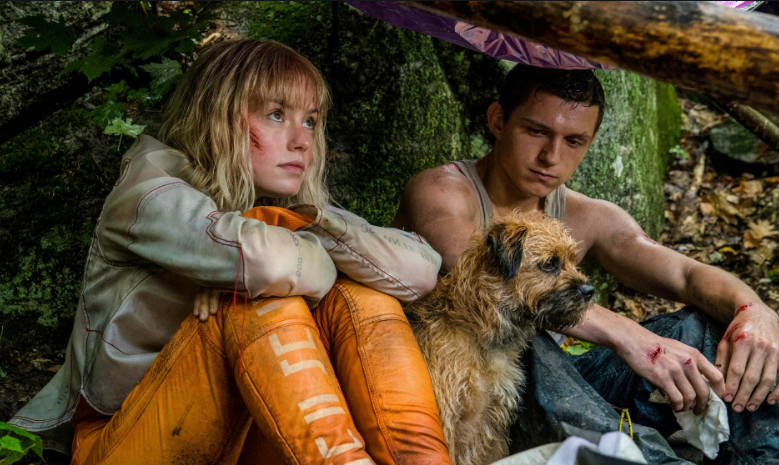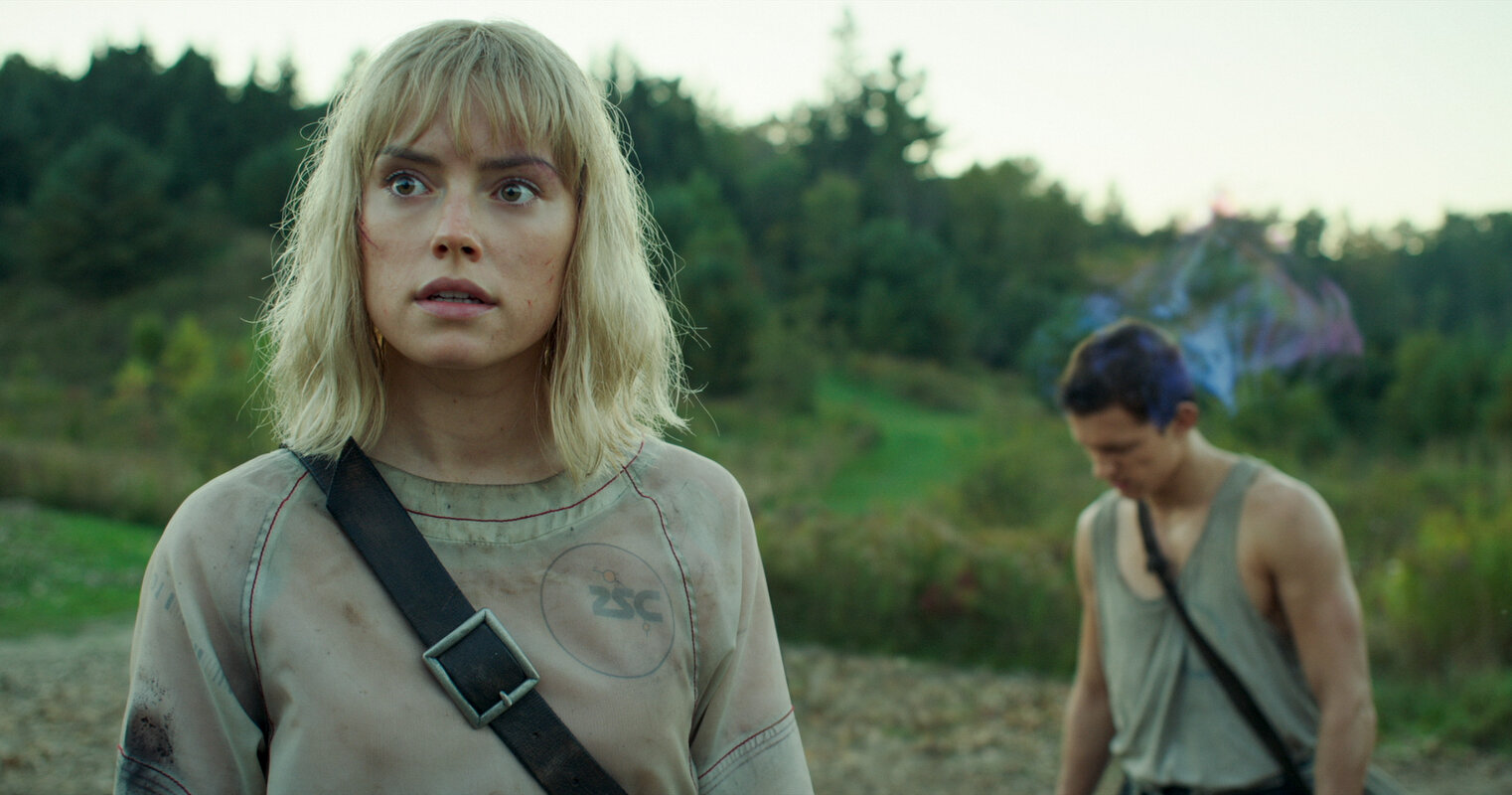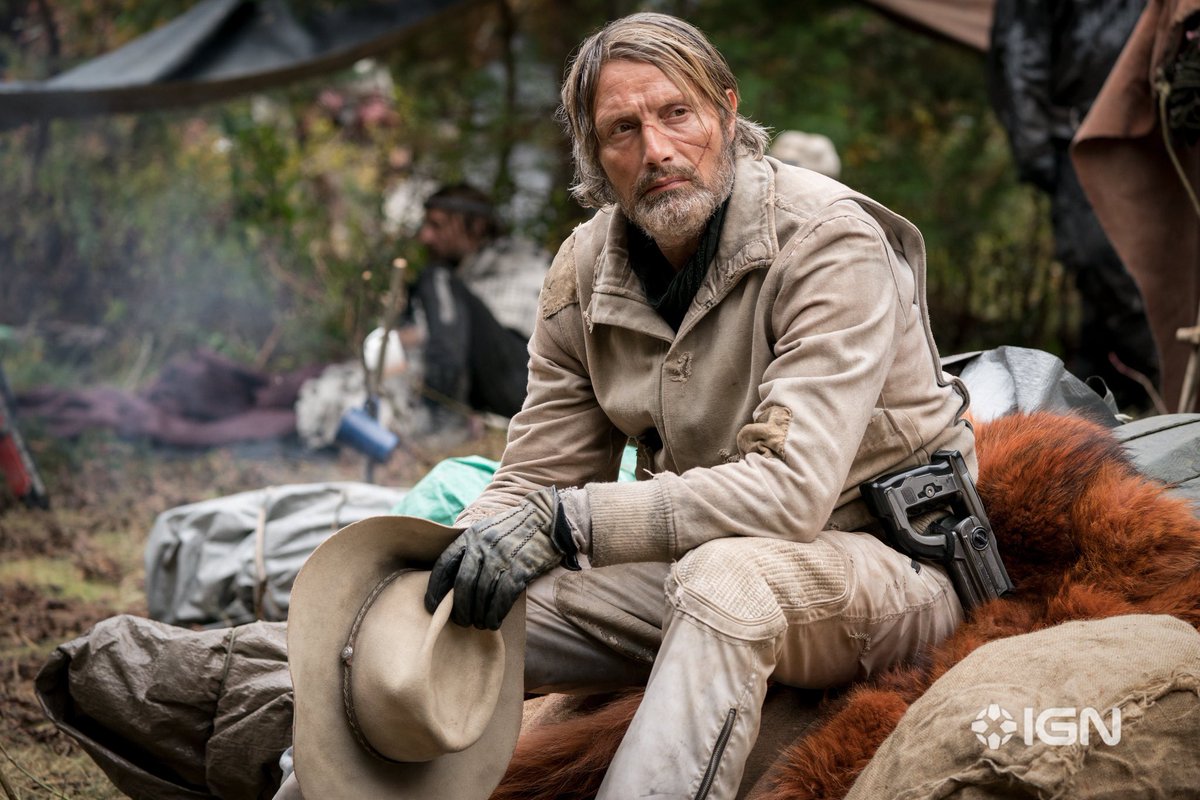When someone tells you not to think of a banana, what’s the first thing you do? I hardly need answer that. That’s the clever conceit of the new movie Chaos Walking, which imagines a distant planet that serves as a refuge for humanity after they use up Earth, with one small price: everyone can hear everyone else’s thoughts. Gone are the days of trying to deceive anyone about anything, unless you can “control your noise.” But even those who can are faced with a difficult challenge when someone asks them a direct question. If they know the answer, they’ll think it before they can stop themselves.
Todd Hewitt (Tom Holland) has a strategy to try to prevent this, to control his noise, by mentally repeating his own name over and over: “I am Todd Hewitt. I am Todd Hewitt.” (And if there’s a more efficient screenwriting trick for teaching an audience a character’s name, I don’t know what it is.) There hasn’t previously been much of a reason to dissemble in this settlement of all men, whose women were killed in a battle against the planet’s native species. They’re surviving and thriving in an agrarian lifestyle, with a few laser guns that look like toys thrown in to remind us the year is 2257.
Of course, this comparative peace must be disturbed. A shuttle from a scouting mission crash lands on so-called New World, and its lone survivor is the first woman this settlement has seen in yonks. She’s Viola (Daisy Ridley), and her whereabouts become a matter of great interest to the men, who have all kinds of designs on her extruding from their heads in colourful sound clouds. Of greater interest may be a larger transport vessel that is set to follow her, which is carrying 4,000 souls – of both genders. For Todd, who has fallen for Viola and wants to protect her, his thoughts may now literally betray him.
This is not an idea we’ve really seen explored before, which makes Chaos Walking a pleasant anomaly in the sci-fi landscape. Pretty much cancelling out the value of that distinctiveness is that it does so little of interest with the central conceit. There are many useful things one could do in a story populated by mind readers, with one character who can’t be read – that’s Viola. (Women don’t have “noise,” though they are just as capable of hearing the men’s.) Imagine the intricate scenarios, the double crosses, the mind games a gifted screenwriter would concoct from these raw materials.
Chaos Walking, though, favours only a few such flights of fancy, and a lot more swirly colours. You see, not only can their thoughts be heard, but these men can conjure images from the purple vapour trails that follow them around. If Todd thinks “Snake!” – loudly enough, I guess – he can whip up a phantasm of a reptile to frighten his opponent off his horse. There are a lot of what seem like Jedi mind tricks here, which is appropriate given that Ridley is the recently retired veteran of three Star Wars movies. At least one scene will make you think of Luke Skywalker’s final act in The Last Jedi.
The problem is that Doug Liman is an action director, and this is not really an action movie. Especially given what he did with high concept sci-fi in Edge of Tomorrow, you’d have high hopes for Chaos Walking, but the little action there is falls flat.
He just doesn’t have the script to work with. The screenplay by Patrick Ness and Christopher Ford, an adaptation of Ness’ book The Knife of Never Letting Go (glad they changed the title), is a scattershot affair. Whole characters get no payoff, like Todd’s adversary (played by Nick Jonas), and the threat posed by the native species is dropped like a hot potato. The intriguing dynamic between the characters also dissipates halfway through due to a change that has little narrative value. Even at nearly two hours, it’s as though 30 minutes of this film were left in the editing bay.
The acting doesn’t help things. Holland is good enough, as there may be no better casting choice for an innocent whose earnestness and charming teen angst we can hear as a running neurotic dialogue. Ridley, though, really drops the ball. Viola has lived her life in transit from Earth, so everything on the planet is new to her – but Ridley overplays it, forever wearing the alarmed expression of a neanderthal who isn’t sure what she thinks of this new invention called fire. Because we can’t get to know her through her thoughts, she’s a blank, as her dialogue is poorly equipped to convey the unusual life she’s lived.
Mads Mikkelsen chews on the role of the settlement leader, bringing his usual arresting presence, but you can’t escape the notion that this material is beneath him, even if he’s too much a professional to indicate that in his performance. Same can be said for David Oyelowo, a preacher whose sound cloud bursts aflame as he drips with disgust for the sinners around him. You know from first introduction this character will come to no good – he sneers disdainfully any chance he gets – but the bizarre doubling down on his malevolence makes him an exaggeration to an irresponsible degree.
There’s a parallel between this character and the narrative on the whole, which reveals secrets about what these men have done in the past that beggar belief. If you’re hip to the moral politics of arriving on a new planet and trying to take it from the natives, you know the natives are probably scapegoats for something far worse. That far worse thing makes as little sense, and gets as little screen time, as any other conceptual misfire in Chaos Walking. A good premise takes this film farther then it deserves, but at that point, you’re left with nothing but noise.
Chaos Walking is currently playing in Australian cinemas.



